Best Practices Articles
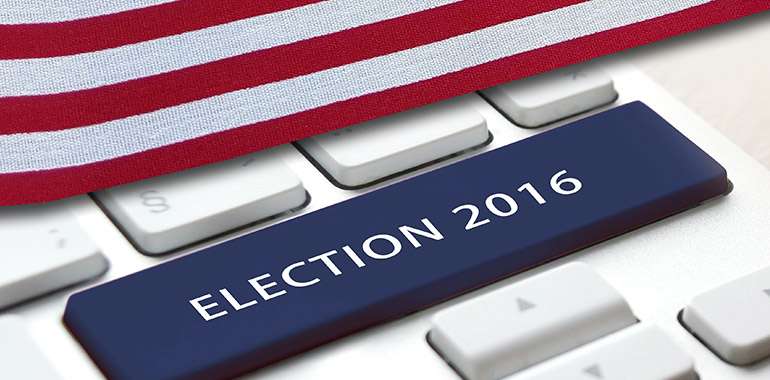
How Technology Influenced Everything Associated with the U.S. 2016 Election
I voted for the 2016 Election early in November, put my ballot in the mail and then left for a two-week business trip, meeting customers in six cities (London, Kortrijk, Munich, Kolkata, Bangkok and Singapore) and arriving back in the US yesterday. As I traveled literally around the world while the US presidential election was going on around, it was amazing that in every country I visited everyone was quite interested in what was going on with our election in the US. Every hotel I stayed at had BBC or CNN, which I watched whenever I was awake—which was pretty much most of the time, due to my jet lag. I read the New York Times, Le Monde, the Guardian, the Economist, the Breitbart News Network, Fox and everything else that I could find when I was up and awake as I hopped from one city to another. It was simply fascinating to watch—not just as a voter but also as a technologist.
If you were watching I am sure that you are aware that there has been an enormous amount of analysis going on in nearly every country around the world, discussing every aspect of the election outcome and the responses it has inspired—whether fear, disgust, anger, euphoria, hope or what have you. Whatever one feels about the outcome, it seems the entire globe is engaged in this discussion. And yet somehow in this “yuge” worldwide conversation one of the most important factors in this election has been almost entirely overlooked: the impact of technology—not just during the election but leading up to it and, indeed, over the past decade or so. So, while I am not a political commentator and do not want to take any side from a political perspective, I do want to reflect as a participant on how technology impacted the U.S. 2016 Election and will continue to impact elections and politics in a significant way.
I am writing this on my way back from Singapore to San Francisco. Pardon me if I say something improper here, but based on all the things I have heard and seen, in my humble opinion politicians and policy makers who are incapable of understanding the profound impact of technology will simply get obliterated by voters. When it comes to the impact of technology, I am not referring to Hillary Clinton's emails or Donald Trump’s tweets. It’s much more complex than that. Also, the purpose of this article is not to position technology as a problem and suggest solutions. Instead, I want to provide some commentary on the impact of technology on our everyday lives in every corner of the globe—including major decisions that we all make as voters in our respective countries. I would propose that this is independent of the country we happen to live in, and has more to do with the time we all live in as members of the human race. I believe the Brexit vote in the UK and the US presidential election are a precursor of what’s to come in many countries across the globe.
Dr. Amartya Sen, Nobel Laureate, in his book Development as Freedom, clearly presents the progress of democracies as fundamentally dependent upon progress in economic freedom (or mobility), social inclusion (gender, race, income groups, etc.) and political freedom (ability to express opinions freely and vote). Of course there are several other factors in the progress of democracy — such as separation of church and state, independent central banking, free media, judicial and law enforcement and several —but like Dr. Sen, I regard economic freedom, social inclusion and political freedom as the three core pillars that drive prosperity and progress.
So, drawing upon these three pillars for context, I’d like to put my own spin on Dr. Sen’s framework and analyze the US election in terms of five key areas of voter priorities: economic progress, social inclusion, individual (and national) security, religious freedom and, finally, moral compass. The first three are tied to our physical needs, and the last two are linked to our emotional needs. Taken together, these voter priorities are where the head and heart connect for every voter.
Let’s take a few minutes and explore these five core areas that undoubtedly influenced the decision process of voters:
Economic mobility: When it comes to economic progress, the dynamics in developed countries are very different from developing countries today. However, one common theme is economic mobility. Whether it is about getting above the poverty line or moving up within the middle class, every individual in every part of the world wants to make progress—if not for themselves, then certainly for their children. In a diverse country like the US where wealth end economic mobility vary greatly from coast to coast and are tied to educational and other social parameters, the priorities of the voters are vastly different. This was quite obvious from the exit polls in the US election, which revealed dramatic differences from state to state.
Social inclusion: The foundation of democracy is based on the equal and fair participation of its citizens, and in today’s increasingly global world that principle also extends to residents who are non-citizens. There is plenty of empirical evidence to suggest that inclusive societies tend to progress at a faster pace, in this age of globalization, by incorporating diverse sets of ideas and options rather than being obsessed with preserving a homogeneous culture. The fear of being left out tends to drive an almost primal instinct to fight back, and that fear has been a prominent feature of this entire election cycle, as demonstrated by voices heard across races, genders and ages.
Personal security: In Maslow’s Hierarchy of Needs, security is fundamental. Wars between major powers around the world as well as conflicts happening at the local level between citizens and law enforcement authorities are fundamental sources of anxiety today. Such conflict is often captured live and shared instantly on various platforms powered by technology. This is unprecedented, and not just in the US. This is an issue that exists now in every society around the world, including countries that are not democratic. The decisions made by voters today are highly impacted and also amplified by this constant sense of unrest across the world—much more so than even a few decades ago, when news didn’t travel nearly as fast from one part of the world to another. All of us are looking for someone who can protect us from this all-pervasive anxiety from digital and physical threats. Indeed, technology has in many ways created this intrinsic need for a “super human” to protect us. This anxiety is basic and primal, and it is here to stay.
Religious freedom: Inclusion brings diversity, which in turn introduces variations in belief systems and thoughts. Belief systems are the bedrock of societies and individuals. While most religions have certain converging principles, it’s the rituals that make them look very different. What we see—however limited or narrow that view may be—is what we ultimately understand. This is a significant source of discomfort for many individuals, because we humans tend to be afraid of what we don’t understand. This is a fundamental principle behind our collective need for personal security, and it drives the decisions of many—not just in the US, but in all countries. What is amplified today is a reflection of what is on the surface, but beneath the surface religious freedom (or lack thereof) is a significant driver of voter dynamics. We saw clear evidence of that in the recent election, and we will see more of it as the world relies increasingly on videos for information and politicians create personal narratives and personas using them.
Ethics and morality: In the end, good always defeats evil. This is not just theory; history is full of evidence supporting this proposition. We all recognize what is good, what is moral and what is ethical. However, when we judge others, we do so with the facts that we have at hand and the filters (of belief and value systems) we apply—including our priorities connected to economic mobility, social inclusion, personal security and religious freedom. This was quite clear in voters’ interpretations of the controversies around Hillary’s emails and Trump’s tweets. What the voters saw was interpreted almost entirely through their own moral filters. The same facts were interpreted very differently. And this divergence of interpretation on the part of voters will only widen as we move forward. Technology, in this context, is limiting our ability to learn and interpret information rather than broadening it. In other words, we are more distracted today than we were even a decade ago.
When you take these five key factors in the decisions that voters make and map them against three core global trends—globalization, knowledge explosion and digitization—you can begin to unravel the mystery behind what really happened in 2016 US Election. You can also begin to anticipate how this technology-driven phenomenon will continue to morph, not just in the US but in all countries—democratic or autocratic—around the world.
Let’s review these three core global trends across the five core areas I have identified as driving voter preference.
Globalization: Not just war, but peace also drives people to move from one country to another. No matter how you look at it, we are all getting mixed up. The old notion of “this is my village and you are not welcome because you don't fit in” doesn’t really work anymore. While one can argue that jobs are getting shipped to other countries or disappearing, the fundamental demographic shifts in developed countries (due to aging populations) will necessarily draw immigrants to fulfill the needs of those countries. No matter what we do, someone “new” and “foreign” will always invade our villages, generating fear and conflict.
Knowledge explosion: In 1920s there were three disciplines in engineering: civil, mechanical and electrical. Today there are close to70 different specializations in engineering and multiple levels of studies. This is just in my discipline. When you look across other types of disciplines this specialization is pervasive, which is due to the network effect of knowledge growth. The more we know, the more we discover; the more we discover, the more we know. On it goes. There may still be knowledge domains that elude us, like the brain, the deep sea and the universe, but we’re making progress in those areas too. One thing is certain: knowledge will continue to expand and explode around the world.
Digitization: Everything is getting digitized—our writing, our voices, our videos. And not just thoughts, but also things (3D printing) are now digitized. Everything is being stored, archived and indexed, and can be found rapidly. We can search hundreds of tweets or thousands of emails or millions of videos to find, share and comment on whatever we want. This has dramatically changed and influenced how we spend our time. A few decades ago we watched the news, discussed it with a few friends and formed our opinions accordingly. Today, we are all connected—and often independent of our social income and mobility. All of this is driven by the enormous wave of digitization. Those who have the ability and inclination to decipher complex issues may sort through large amounts of information to understand where each candidate stands. Those who don't have the access, ability or time to do so are disproportionately influenced by peers and “group think.” Digitization tends to narrow our world view. The explosion of content takes up more and more of our limited time and fragments our thinking. Quantity takes precedence over quality, and we lose our ability to judge properly.
We have access to more information today about the world than ever before, but that doesn’t mean we are better informed. The rise of globalization, knowledge explosion and access to digital content has made voters’ lives very complex. The result is that, even when factual information is readily available, the head quits and the heart takes over. “Logic” becomes a function of our emotions rather than facts.
When I look back at the US 2016 election, I see 10 major technological factors that had a huge impact for both parties—positively or negatively—and it’s striking how often the heart took precedence over the head. For a society, both the heart and the head are equally important, because it’s not just economic mobility, social inclusion and personal security that matter; it also matters how we feel as a community.
Here are 10 specific examples where technology shaped our understanding and our feelings in this recent election season.
Disappearing jobs: As societies over the past five centuries moved from an agriculture-based economy to an economy based on information technology, various forms of automation began to be introduced rapidly in all aspects of life. Whether we consider business process automation eliminating the jobs that were once performed by thousands of clerks, or marketing and sales automation that are replacing marketing and sales job, or highly automated manufacturing lines that are replacing human labor, the fact is we are at the beginning of an automation explosion. Any job that doesn’t add original thinking and can be automated will be replaced. This is a profound shift. The shift from an agricultural to a mechanical skill set was incremental. But today we have something altogether different. A factory of today produces more complex products, and is run primarily by engineers. You have to fundamentally change your educational system to address that. This is what we have seen in the American Midwest. Despite the fact that US automotive companies are once again #1 in multiple categories and have successfully recovered and restructured from 2008 recession, the number of employees working in these factories is a fraction of what it used to be. These jobs didn’t go overseas. They just disappeared—eaten up by technology. In fact, labor-intensive jobs in China and India are also disappearing at an alarming rate. Since a clear path to recovery and full employment is not yet defined, and since re-education requires the restructuring of our education system to be aligned with tomorrows industries, most voters end up voting with their heart, not with their head. Neither party had clear solutions to this challenge, so voters chose what they felt was right, setting the future on a path that may or may not prove successful.
Energy needs and climate change: Over the past couple of decades, fracking and a few other technologies have helped us make significant progress in oil and gas extraction and have fundamentally changed the energy production capacity—as well as the political power associated with it. This has rapidly reshaped the geopolitical balances across nations. The crisis that is happening in Middle East today is based on a fundamental conflict of interest that arises from various nations tied to their current dependence on energy. Whether it is the need to consume more at a lower price, or to sell what you produce at a higher price to fill national coffers, energy-related developments are having a profound impact on geopolitics. The primary cause of this is progress in technology that is adding not just more sources of fossil fuels, but also rapid inclusion and proliferation of alternative and renewable energy sources. This trend will not go away. This year’s election was powerfully influenced by these dynamics, which are also connected to the rise of ISIS, the serious challenges of climate change, environmental regulations, and so on—all directly linked to the technology shift that is going on in this space. And, again, it affects all of us around the world.
Concentration of wealth: While there are various economic theories and opposing views about the participation of government vs. the individual in wealth creation, one common reality all can accept is that cross-border investments were rare until recently because global investment markets were not highly organized, and the majority of those investments were carried out by companies rather than individuals. Today, however, with the advent of various investment instruments, “retail” investors can invest into foreign funds through mutual funds. This fundamentally shifts the utilization of wealth from one location to another. Therefore, the concept of a wealthy nation is highly misplaced, because corporations and individuals no longer invest into a location based on where they live or work. They invest based on where the opportunities are. Jobs are created based on investment, and therefore, when money flow across borders based on tax incentives or other market-consumption-related opportunities, it is almost impossible to drive policy-level changes to concentrate wealth in a particular location. This geographical dissemination of wealth is the product of investment instruments driven by technologies and the connectivity of stock exchanges around the world. This technology-driven effect will continue to accelerate through the first half of this century, and it was clearly reflected in the 2016 Election results, which revealed a stark difference between voting in California and voting in Michigan. In California’s Silicon Valley, technology creates few but highly paid tech jobs; in Detroit, Michigan, workers have lost well-paid jobs to robots built by Silicon Valley engineers. This kind of shift is here to stay and will impact elections for many years to come.
Social media: Many have talked about Trump’s Twitter account and the good or bad it may have caused for his campaign, his party and the country at large. However, this discussion misses one of the more serious aspects of the impact of social media, which is proliferation of “group think.” When it comes to a societal change—like the Arab Spring—that is organized via social media, citizens are engaged in a completely different way that is still almost unthinkable to most of us and not understood by most politicians. While there are savvy marketers involved in today’s politics, their engagement is largely outbound, focused on communicating rather than understanding. Corporations today are investing enormous funds into social media technology to listen to their consumer base. Politicians need to do the same to understand their constituents. They need to remember not just to speak out, but to listen in. Understanding what the voters want was a primary driver for success in this election. It’s not just a matter of creating 10 million followers who you can tweet to, but understanding what your 10 million followers actually care about. This is more important than formal poll-taking, which obviously failed to capture the true sentiments and dynamics of the voters in the recent election. The lesson we learned is: Don’t ask, just listen. Again, this election phenomenon was driven by technology, and we saw how one politician more effectively capitalized on it while another was gravely impacted by it.
Rise of the failed pundits: In a democratic society, free media plays an instrumental role in driving transparency and accountability. Over the past two decades, the news business has changed dramatically. All of us today get our news online or via alerts. By the time we get back home to watch the news on TV, the news is old. As a result, all media channels have now incorporated a lineup of pundits who have their own thoughts and beliefs and, of course, biases. Their sources of information or understanding remain directly linked to their own personal ability to harness technology to learn and grow. When you listen to some of the pundits on CNN or Fox you can almost directly map their ability or inability to articulate what is going on against their ability to effectively leverage all of the digital listening tools that are available. Many speak from past experience or personal anecdote, which clearly fails to represent a highly dynamic shift in the polity. In the months leading up to the election, most of us pretty much knew the news, so the evening hours got filled with meaningless analyses of emails, tweets and videos, and left the voters virtually devoid of potential solutions and options to think about. Driven by ratings, sensationalism drove most prime time discussions. Tracking technology and micro-segmentation for advertisers took precedence over dissemination of facts and policy proposals. The pundits tried to look smart, but failed to decipher what truly was about happen. This unfortunate trend is likely to continue.
Lack of technological sophistication: Don’t you find it amazing that most of the politicians today who are in office or running our countries lack technology exposure? How can they govern and manage a fundamental shift in our society driven by technology when they cannot even type? NPR presented a podcast a week ago where it was revealed that Hillary Clinton is not comfortable with email or smart phones, and many of her staffers don’t even know what a server is. Apparently, they didn't understand the very severe consequences of using a private server for government business. Whether all of these claims are true or not—just the concept of it is mind-boggling. Trump, for his part, apparently doesn’t have a computer of his own. How is this possible in 2016? And this is not just about Trump or Clinton or the US. This is a generic issue about most political leaders around the world. There is a huge disparity between the technical skillsets of the millennials and Gen-Xers on one hand and the Baby Boomers on the other who are now in leading positions in politics. There is a fundamental generation gap when it comes to understanding the impact of technology, and it appears that gap will be with us for a while until we have more millennials engaged in politics and actively influencing policies.
Taxes, tweets and tapes: During this entire election cycle, Trump tweeted, and the media published tapes. Tax information was leaked manually but was distributed digitally over the web. There was a digital war on all channels—online and offline. Despite the sometimes horrific content of these tweets and tapes, the dissemination of the facts, interpretation and explanation happened in various micro-groups and clusters in social media. If you were on Facebook, you saw what you liked, because you have friends who are very similar to you. Despite the fact Facebook claims it doesn’t artificially create news feeds (you get what you “like”), the fact that your feed is based on your preferences is the very source of your information bias, and it’s difficult to imagine how a voter can form opinions about taxes, tapes and tweets without being unduly influenced by the micro-cluster they belong to—at least in most cases.
Anthony Weiner’s tech bloopers: We all know how Anthony Weiner got in trouble with the law. Basically, it was improper activities using Twitter. A decade ago he would have possibly survived and stayed under the radar, since this technology didn’t exist. No one really knows how the disgraced former Representative’s laptop came to possess emails between Huma Abedin and Hillary Clinton, but the very nature of this investigation clearly demonstrates how technology impacts politics today. Anything that is digital is traceable, and the scenario in which the FBI found and searched hundreds and thousands of emails in seven days clearly shows how technology can play a huge role in political contests. Regardless of whether FBI Director James Comey should or shouldn’t have disclosed the existence and investigation of these emails so close to the election, the episode clearly demonstrates how today’s elections are inextricably entwined with technology.
Hacking and leaks: As if politics was not complicated enough on its own, the advent of hacking into digital space by forces that may be trying to influence the election adds a whole new dimension to the political environment. It was amazing to see how publicly hacked and stolen information got distributed, discussed and validated (or not), and how hacked conversations dominated the news cycle and people’s opinions—and without any consequences for the perpetrators. Whether you agree or not with the ethics of this activity, the reality is that digital access to private conversations between political operatives changed the discourse fundamentally. And we accepted it as a part of national discourse. If you are in politics, it’s wise to assume that whatever you say, write or do—all will eventually be known to the general public due to technology.
Foreign interference: Last but not least, the fact that foreign powers appeared to interfere with the election by leaking hacked emails was something new and, again, was directly related to technology. Of course, foreign governments have always played a role in consequential elections around the world. There is ample historical evidence from the time of the Pharaohs in Egypt revealing how certain nations tried to influence the policies and future directions of other nations. In those days, it may have been a matter of marrying off sons and daughters to the right prince or princess, but in today’s world the same process occurs via digital access and hacking. It's no longer just the flow of money or people that has the potential to influence political contests. It’s what’s online and what’s disseminated in the media. This has been the case to some extent for the past two decades, but it became especially important this year and, again, was the direct result of technology.
I started this article with the title, “How Technology Influenced Everything Associated with the US 2016 Election.” The word “influence” may connote “manipulation” or “rigging” for some people. That’s not what I mean. I am in no way suggesting the outcome of the election was achieved through fraud or manipulation, but rather that every aspect of this election was impacted in some way by technology. Everything I wrote here would still be true if Hillary Clinton were elected.
But I have a broader point: I would humbly propose that we, as a society, should consider that technology, while it has had a huge positive impact in bringing millions out of poverty and creating jobs and opportunities for many around the world, has also had a profound effect on our national discourse, and political environment. It is not about calling a group of voters smart or crazy; it is about where we are as a society and trying to figure out how technology is shaping all aspects of our lives. As I read through and listen to all of the experts on TV, in magazines and in special reports, it seems a narrative emerges which basically says it will get worse before it will get better. Perhaps that’s true; I hope not. More to the point, I think, is that when you step back and take a look at this year’s election, it is likely just the beginning—at least from a technology perspective. We will have to get used to it and come to a much better collective understanding of it. As we go through this profound shift, more uncertainty about our future may drive near-term chaos, but I am convinced that in the longer term technology will help bring more inclusion, more empathy and a more balanced and fair society.
When my 10-year-old daughter recently asked, ”Daddy, how will your vote impact my future?” I didn't know how to answer, so I said, “Good question. Let me think about it.” As I try to think of an appropriate answer to her question, a more fundamental question arises in my mind: How will technology impact your vote or my vote in the future? Technology is a double-edged sword. It has created wealth and opportunities, brought millions out of poverty, expanded our lives, improved the quality of our environment and made us a more responsible and caring society. But it is also rapidly concentrating wealth due to cross-border dynamics and policies at a national level. Without the right policies, hardship and turmoil will persist. However, with the right policies and investments, and with the restructuring of investment via private-public partnerships, each country can enable its people to truly realize their potential and take the civilization to the next level.
As we move through these turbulent and changing times, no matter how bumpy the ride may be, I still have to believe that all these changes that we are going through will eventually make our social structure more fair, balanced and equal so that we can all participate and realize our true potential, and remain productive citizens of this global community.
Best Practices Guidebook
 Reimagine Sales Development. Build a Smarter Prospecting Engine
Reimagine Sales Development. Build a Smarter Prospecting EngineDownload Guide
 The Zero Trust Imperative: Fortifying Enterprise Security Against AI-Driven Threats
The Zero Trust Imperative: Fortifying Enterprise Security Against AI-Driven ThreatsDownload Guide
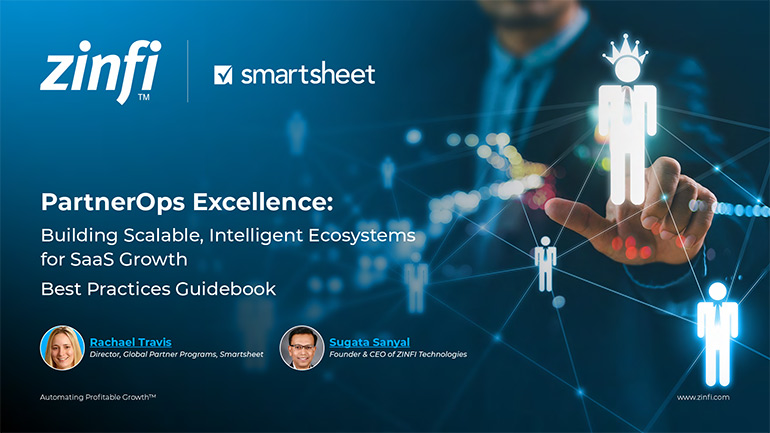 PartnerOps Excellence: The Definitive Guide to Scalable SaaS Ecosystems
PartnerOps Excellence: The Definitive Guide to Scalable SaaS EcosystemsDownload Guide
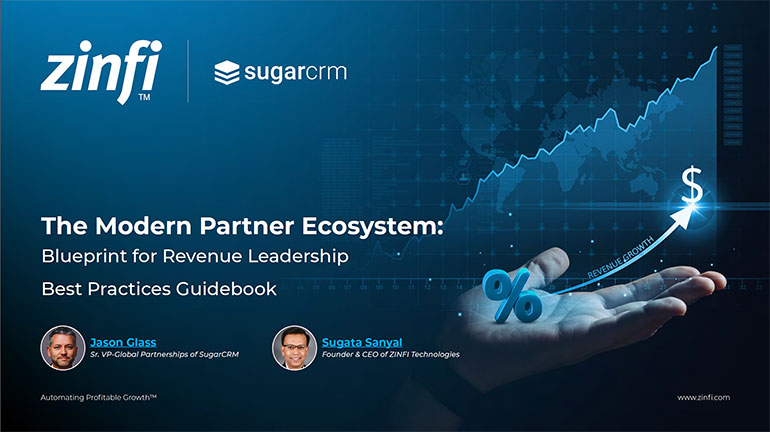 The Modern Partner Ecosystem Best Practices
The Modern Partner Ecosystem Best PracticesDownload Guide
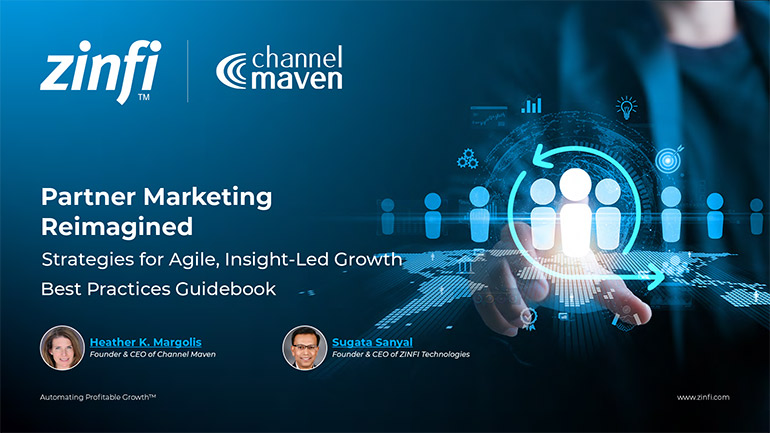 Partner Marketing Reimagined: Strategies for Agile, Insight-Led Growth
Partner Marketing Reimagined: Strategies for Agile, Insight-Led GrowthDownload Guide
 Scaling with PartnerOps Best Pratices
Scaling with PartnerOps Best PraticesDownload Guide
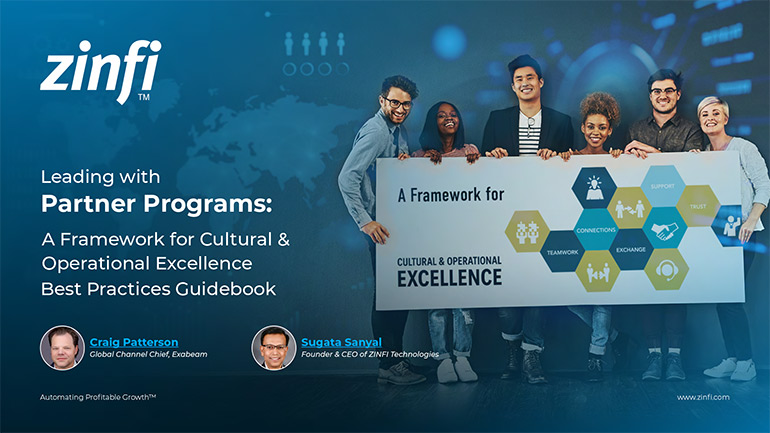 Leading with Partner Programs Best Pratices
Leading with Partner Programs Best PraticesDownload Guide
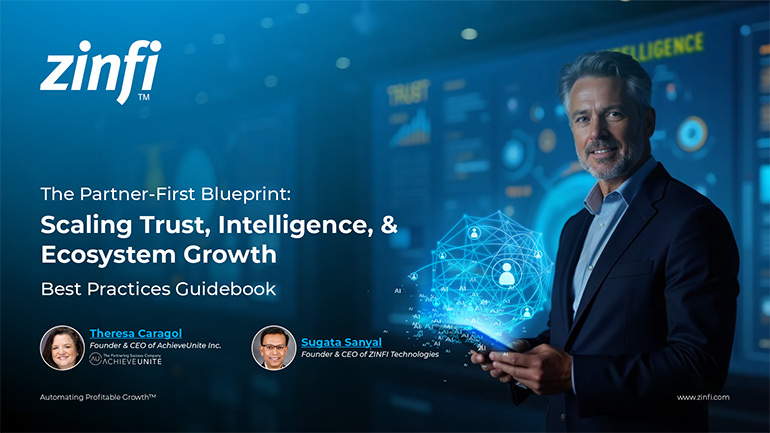 The Partner-First Blueprint: Scaling Trust, Intelligence, and Ecosystem Growth
The Partner-First Blueprint: Scaling Trust, Intelligence, and Ecosystem GrowthDownload Guide
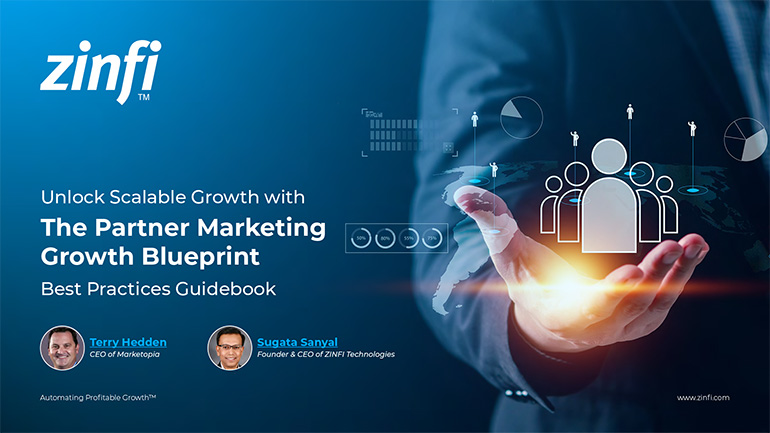 Unlock Scalable Growth with The Partner Marketing Growth Blueprint
Unlock Scalable Growth with The Partner Marketing Growth BlueprintDownload Guide
 From TikTok to LinkedIn: Social Selling Across the Generational Divide
From TikTok to LinkedIn: Social Selling Across the Generational DivideDownload Guide
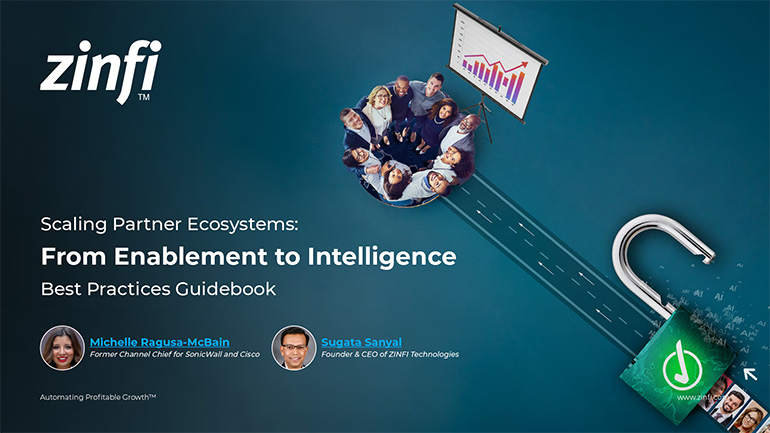 Scaling Partner Ecosystems: From Enablement to Intelligence
Scaling Partner Ecosystems: From Enablement to IntelligenceDownload Guide
 The Ultimate Guide to Partner Marketing Success Best Practices
The Ultimate Guide to Partner Marketing Success Best PracticesDownload Guide
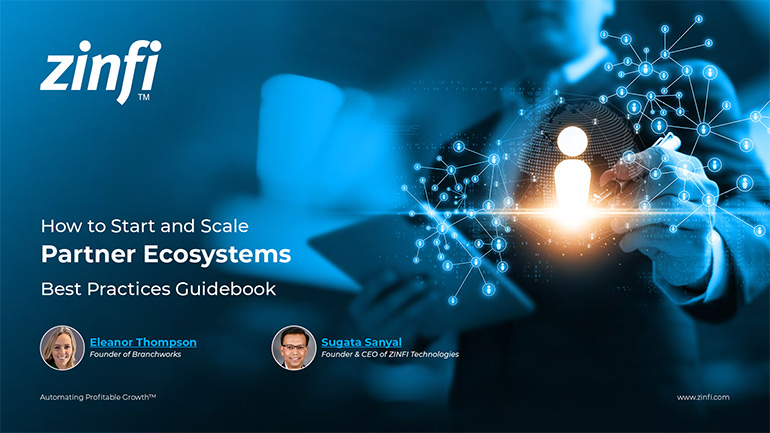 How to Start and Scale Partner Ecosystems Best Practices
How to Start and Scale Partner Ecosystems Best PracticesDownload Guide
 The Evolution of PartnerOps: Past, Present & Future Best Practices
The Evolution of PartnerOps: Past, Present & Future Best PracticesDownload Guide
 Mastering Channel Sales: Strategies, Best Practices, and Growth Tactics for 2025
Mastering Channel Sales: Strategies, Best Practices, and Growth Tactics for 2025Download Guide
 Winning with Partner Advisory Councils: Best Practices for Partner Engagement & Growth
Winning with Partner Advisory Councils: Best Practices for Partner Engagement & GrowthDownload Guide
 The Future of Partner Ecosystems Best Practices
The Future of Partner Ecosystems Best PracticesDownload Guide







